- Home
- Taylor Caldwell
Maggie: Her Marriage
Maggie: Her Marriage Read online
Maggie—Her Marriage
A Novel
Taylor Caldwell
CHAPTER ONE
Peter Hamilton, who was no fool, often remarked at “Good Book readin’ time” that there was nothing in the Bible, not even in Genesis, that indicated God “thought.” God “did.” Of course, nothing that Peter Hamilton said was of any account to his neighbors, just as all the Hamiltons were considered to be permanent liabilities to the community. So Peter’s favorite remark on the activities of the Almighty was dismissed as “blasphemy” and worthy of a man held in low esteem. This did not bother Peter, for his opinion of his community was as low as its opinion of him.
He loved his smithy because he loved sweat and the rhythm of his strong muscles. Nothing was very important to him except the joy of his labor. It was a full expression of all of him, of his body, his mind, and his healthy sexuality. He was forty-two years old, twenty-two years married, the husband of an enfeebled hypochondriac, the father of five living children and five dead children. He was poor and jovial, boisterous and animal, given to brutalities like those of the earth he loved.
This warm autumn day inspired him to increased efforts. Occasionally he paused to get his breath and look over the hazy heat of the countryside. The sky was pale and warm and dazzling; the hills were folded ridges of bronze, the fields had a patina of rough gold. He heard the restless cawing of crows, the stamping of the horses. Otherwise there was no sound; there was only heat and dazzle.
He slowly came out of the black and flaming cavern of the smithy and stood in the doorway, wiping his hands on his leather apron, yawning for several minutes. He lit his pipe, pushing in the tobacco with a black thumb. He yawned again, glanced at the sky.
“Phew! It’s hot today!” he exclaimed. The horse pricked up his ears, rolled an affectionate eye at him. Heat waves danced over the harvested fields, shimmered in the foliage of the burning maples.
The blacksmith flexed his great arms, enjoying the strength of them. He rubbed his beard with the back of his hand; even the feel of the strong bristles against his rough skin gave him pleasure. Then he stood listening alertly. Hoofbeats, muffled by the thick dust of the road, drummed through the silent air.
“Well, here comes your boss!” he said to the horse, slapping him on the back. The horse pricked up his ears, turned restlessly toward the sound of the coming hoofbeats. An amiable expression spread over Peter’s face; he looked expectantly up the road. A horseman came in sight around the bend, a mighty horesman on a mightier horse. He cantered rapidly up to the blacksmith, reined in competently, and smiled down at the man below.
“Phew! Hotter’n hell,” he announced. “Hoss shod?”
“Yep. Here he be, John.”
“Well,” said the horseman. “How much do I owe you?”
The price was named and received. The jingle of the coins was loud in the stillness. The man on the horse seemed to reflect.
He was a young man, still under thirty, taller and broader than Peter. He had a strong face, with the short distended nose of the belligerent man, a firmly cut mouth, and keen direct eyes. His ears were burned scarlet, but his complexion was a rich brown accented by low, black brows and black hair. His shoulders were exceptionally broad, his torso magnificent. Despite the thick dust on his clothing, it was evident that he was a man of substance, for his coat was well cut, of good broadcloth.
He was John Hobart, owner of four hundred acres of rich black bottom land, stockman and amateur banker, final word in the local Baptist Church, politician and arbiter of manners and morals, consulted on practically everything. No one in that community dared defy him. No farmer would have dreamed of buying a new breed of hog or cow without consulting him; his opinion was deferentially asked on all matters from weddings to crops. If he were arrogant and brusque, his opinion was invariably sound, compounded of belief in his own infallibility and real intelligence. He was a shrewd, practical man, softened by impulses of charity, which he often regretted later.
“Looks as though we might have a good rain,” said Peter, just to make conversation.
“Bah,” said Hobart, squinting at the sky. “Ain’t goin’ to be any rain for a long time. You town folks never know nothin’ about the weather.”
Looked at broadly, Peter was not a townsman, though his twenty acres stood not more than two miles from Whitmore, the county seat, a town of about ten thousand inhabitants. But the twenty acres did not entirely support his family, and, therefore, he was a “townsman.”
John’s immediate dismissal of his opinion riled the blacksmith. He had not really believed that any rain portended. But he was as elemental as nature, and his quick blood rose to his face. So he deliberately, with a hidden confidence of a certain power he had over the younger man, lifted his face to the burning heavens.
“An’ I say there will be rain soon,” he almost shouted. “Maybe tomorrow. Tomorrow night, sure. You wait and see.”
“Bah,” said John again, and he spat into the dust. Conversation languished.
“Look here!” John burst out suddenly, his broad face turning a deeper color. “How about that gal of yours, Maggie? How long do I have to wait? Ain’t she made up her mind yet?”
Peter turned childlike eyes upon John. Inwardly he was gloating.
“Ain’t asked her lately,” he said. “Tell you what, ’spose you come ’round tonight and ask her yourself? Come to supper.”
John wrinkled his nose in frank distaste, thinking of Peter’s home.
“No, thanks,” he said shortly, and wheeled his horse. He would have ridden off then, but there was Maggie. At the thought of her, his red ears went crimson. Why, hundreds of women, even those who lived twenty miles away in the state capital, Williamsburg, would have trembled with joy if he had even crooked a finger at them. Doctors’ daughters, too, girls with money, educated, and ladies. And he had to want Maggie Hamilton, a frowsy country wench, who lived among a swarm of children in a house little better than a hovel! He hated himself viciously; the next minute he knew that he must have her.
At first he had never dreamed of marrying her. He had set out to seduce her. She would not be seduced. Finally, in spite of his rage and self-contempt, he had proposed marriage. He had stared at her incredulously; finally, in a choked voice, he had asked her if she didn’t love him. She had studied him thoughtfully, her eyes traveling as boldly over him as they might have traveled over a stallion. Then she admitted that she didn’t know. But she had colored.
She must have time, she said. Time! A blacksmith’s daughter—! He had ridden away in a fury, vowing never to look at her again. But, that night, he had remembered her, and every molecule of his body had yearned for her. She was in his blood; she belonged to him. And he came back, drawn by something stronger than his will. She had not seemed surprised to see him. She had expected him. And she was continuing to torture him, damn her! Keeping him dangling; making a fool of him in the eyes of the astonished folk whom he regarded as thoroughly inferior.
He was not subtle enough to know why she hesitated. He knew that she liked him; when he took her hand she trembled. She had allowed him to kiss her a few times; he had felt the uncontrollable way in which she had pressed her round breast hard against his chest; he had felt in her an answering passion. And then, later, she had reiterated that she must have time. Why, in the name of God?
He was thinking of all these things as he sat in glowering silence on his restless horse. “What ails the gal, anyways?” he demanded. “Anyone else, or somethin’?”
Peter scratched his head, ruminating.
“No, there ain’t no one else. See here, John, Maggie likes you. She told me so. But, she’s allus been free and easy-like, runnin’ around, goin’ to see my old Gra
ndmaw, and talkin’ to her. Why, the ole woman taught Maggie to write and read all kinds of outlandish books she brought from England when she was a gal herself. We’ve got good blood in our family, even if I say it myself. The ole woman can speak three languages, too, she says, and figure like all get-out. Writes a hand like a scholar. Well, she’s given Maggie notions. The gal told me only yesterday that gettin’ married was serious and ought to be thought about. But, she likes you, John. It’ll come out all right; no use gettin’ het up about it.”
The younger man allowed himself to be placated but he still scowled.
“What’s this I bin hearin’ lately about Maggie and that no-account cousin of her’n, Ralph Blodgett? Folks say she roams around with him, and I’ve—”
Peter burst out into a roar of honest laughter.
“That young dreamer,” he jeered. “Why he’s younger’n Maggie, and ain’t even as tall as her. He and that silly ole mother of his! Time and time again I’ve told Melindy that there’s cracked heads in her family, with that sister of hers mincin’ around. She never let her ole man train the boy to run the farm proper, as you know, John, and they’ve got the measliest hunnerd acres this side of Whitmore. If it weren’t for their hired man, they’d been thrown out long ago. And Ralph’s just like her, always readin’ and talkin’ poetry to Maggie. The gal’s just sorry for him, he bein’ laughed at by all the folks in the county, and she stands up for him. But, as for marryin’ that Ralph Blodgett—! Maggie’s got sense.”
John chewed his lip for some moments, relieved. Then he glared again at Peter.
“If you had an ounce of guts you’d talk to her proper, seein’ as you’re her dad.”
Instantly Peter’s face became congested with rage. He seized the reins of John’s horse; his flaming black eyes assaulted the other.
“See here, John Hobart, you may be the big noise in this country, but no man’s goin’ to tell me I ain’t got guts! Why, damn you, I kin whip you with one hand tied behind me.”
They glared at each other. John clutched his whip; then he remembered that Peter was Maggie’s father; moreover, he really admired the older man. He smiled darkly.
“Say—We’re not goin’ to fight, you and me, Pete. What for? I’ve allus said you’re the smartest man in the county. What I meant was that seein’ as you are her father, you could say somethin’ to Maggie about her and me.” His smile grew broader.
Peter was not easily placated. He released the reins. “Well, I’m not sayin’ anythin’ to Maggie,” he declared flatly. “She kin have you or she needn’t. We need her at home, anyways. Allus did say that Maggie was the only young un I had that was any account. You’ll have to fight it out yourself with her. I’m not sayin’.”
He knew this was hypocrisy. He had been “sayin’” for a long time to Maggie. She was his favorite child; this marriage was beyond any dream of splendor he had ever had. Lately he had shouted at her; she had shouted back. He loved her very much; sometimes he regretted that she was his daughter. He had no taboos of thought.
“Tell you what,” said John disarmingly. “I’ll ride over tonight and have it out with her. After supper. Pete Hamilton, you’ve got the only gal in the county I’d look at twice! You know what things are all about; you wasn’t born yesterday. I’ve got to have that gal, if I’ve got to pick her up and run with her. I’m a man, Pete.”
Peter smiled again; his good nature almost completely restored. Damn it, the gal would say yes that night or get a horsewhippin’!
CHAPTER TWO
“Ain’t but three kinds of flowers worth a tinker’s damn,” declared Grandma Margot Hamilton as she stooped her ancient bulk to strip off a few withered leaves from her rose bushes. “And they’re roses, lilacs, and sweet locust.”
Her cracked old voice and her words were full of a curious combination of ignorance, intelligence, and culture. At times, she might have been at home in a drawing room, despite her sun-darkened old face with its web of deep furrows and wrinkles; at other times she might have been merely an ancient crone with misshapen heavy body and ragged old clothes. Seventy years ago she had been as tall and strong and vital as Margaret Hamilton, her great-granddaughter; she still had height and dignity but she was bowed. Her skin was like rich but cracking leather; nearly ninety, her black hair was still thick, with hardly a streak of gray; under beetling brows like Peter’s, her small black eyes were intelligent and shrewd. She had told her great-granddaughter that she hated most everything; humanity, cats, cities, polite conversation, children, preachers, and, especially, women. This hatred included Peter Hamilton’s wife and his four other children. “Can’t abide that woman and her brats!” Her only human exceptions were Peter and his daughter, Margaret. A terrible old woman, finding no sin unpardonable, and few virtues forgivable.
She had been born in 1782; this fall of 1872 would bring her ninetieth birthday. She and her young husband, Samuel Hamilton, her cousin, had come to the raw new land, and had experienced Indians, desolation, wars, hunger, drought, fever, death, and birth in that ancient old log cabin at the front of her garden. These bare golden hills were still forest-covered in her memory; she remembered the great trees being cut around this very site and the ground cleared. Her cousin and husband had been somewhat of a scapegrace and blackguard in England; there was some suspicion of forgery or other felony. At any rate, she had defied everyone and had married him just one day before she had sailed with him to the new country.
In the new raw country there was no elegant society, little civilization. They drifted westward and arrived in new territory, all foothills and flat wide valleys and Indians and forest. There were only a few settlers. Here, said Margot tranquilly, they would live.
The little settlement grew. Sam Hamilton took his place arrogantly among the men. He worked as hard as any of them; he plowed the rich untouched earth, made rude furniture, sowed and harvested, fought marauding Indians, smoked a big pipe. Margot bore five children in the thick-walled log cabin, buried two of them at the edge of the forest.
Her speech took on the color and rough vitality of the other settlers; her hands became gnarled, the fingernails broken. Her face was burned a rich brown, and her black eyes and straight black hair gave her the look of Indian blood. She tucked up her homespun skirts for easy striding; there was no man in the settlement taller than she.
She never forgot the night that Sam died. She had pulled him, bed and all, near to the fire, for the snow was thick on the ledges of the narrow windows, and at night they could hear the howling of the timber wolves beneath a glittering moon. She sat beside him for long hours. The dying man did not move; neither did his wife seem to move. At length she rose, took a candlestick, and went into the children’s room. In that room stood her one huge ironbound box which she had brought from England. In it lay some of her old dresses, rich satins, furred cloaks, glinting brocades; her remaining pieces of jewelry, a garnet necklace and a pair of garnet earrings bordered with tiny seed pearls now discolored with age; several old books of Shakespeare, Milton, and Ben Jonson. She drew forth a gown, all gold brocade, delicate lace rustling. She also took out her garnet jewelry and a fan of black lace stitched with tiny pearls.
Once back with Sam, she removed her homespun dress, slipped the brocade over her brawny shoulders and great brown arms. The fastenings would not meet, but she did not mind that. She hung her garnets in her ears, and about her throat she clasped the garnet necklace. She drew her hands vaguely over the rough black coils of her hair with its streaks of gray. The gown hung on her, misshapen and drawn into folds not intended by the dressmaker. Yet she had an austere dignity that would have precluded laughter. The firelight picked red points of light from the garnets, golden threads from the brocade.
Margot sat down again and took up her vigil. On the stretched brocade of her lap lay the black lace fan, its jewels glittering restlessly. She waited.
Moments crept on. A log fell heavily on the hearth and threw up a shower of golden sparks. Then Sam open
ed his eyes. They were filmed with approaching death.
Margot did not move. Sam stared at her heavily for a long time, as though trying to focus. Then he seemed to start; he stared more acutely. Margot sat, unmoving, the fire to the side of her, coppery and restless, gleaming in the jewels, finding shadows of light in the brocade. She was immense, majestic and ludicrous.
He continued to stare, his weary eyes traveling over her. And then of a sudden he began to laugh, helplessly, weakly, the tears starting from his eyes, rolling down his sunken cheeks. Margot still did not move, but a smile touched her mouth. She lifted the black fan; with great affectations of daintiness she fanned herself, coquetting with Sam with Gargantuan coyness. He sobbed loudly with laughter; at last he lay spent.
Margot, still smiling, knelt beside him, smoothed his grayed hair with a tender hand. He stared in her face, childishly grave, and at peace. Then he laughed a little again. His laughter rose; suddenly it congealed in a cry; he struggled in her arms, twisted, and collapsed. Gently she lay him back on his rough pillows; gently she closed his eyes.
She had staked out one hundred acres of land. It was a terrible struggle to wrench from it sustenance for her children and for herself. During the years that followed Sam’s death she became grim, harsh of hand. Her little daughter succumbed to one hideous winter; her two sons were restless unhappy boys. The eldest went still farther west with a caravan of pioneers. Two years later she heard of his death in an Indian raid. The younger boy, Oliver, remained with his mother, unhappy and savage.
Slowly the acres began to slip through Margot’s hands until only twenty were left. She worked grimly, with only slight assistance from Oliver.
Many of her neighbors had long since moved into town. There were many strangers about her now, the Blodgetts, the Hobarts, the Kings, and the MacKensies. She had little to do with them. She hated the Blodgetts, who were shiftless, the Hobarts, who were upstarts, the Kings, who were crafty, the MacKensies, who were austere and insulting. When Oliver was twenty years old, he married one of Silas King’s many daughters, and brought her to his mother to support. The girl was frail and shifty-eyed, and Margot literally worked her to death, in her sultry hatred. The girl died when her son, young Peter, was born. Between Margot and Oliver there was a silent inflexible hatred. One night he ran away and she never heard from him again. She brought up young Peter with grimness, and without love, at first. But the boy, she soon discovered, was like herself—sturdy, logical, strong. But she never forgave him for marrying Melinda Blodgett, another like his mother. When the friction between the old and the young woman became too great, Peter sensibly built a crude three-room shack at the other extreme end of the twenty acres, and took his bride there. Margot remained in her two-room cabin.

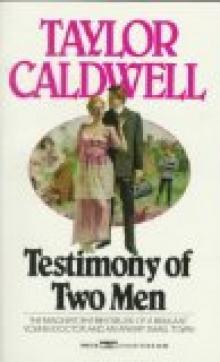 Testimony of Two Men
Testimony of Two Men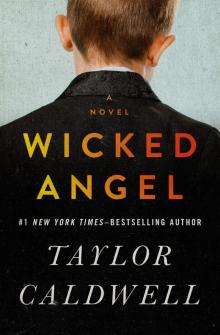 Wicked Angel
Wicked Angel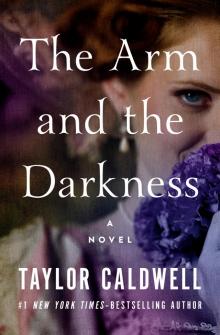 The Arm and the Darkness
The Arm and the Darkness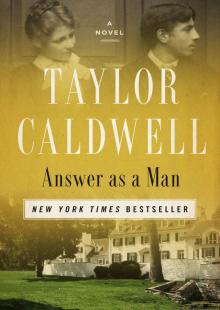 Answer as a Man
Answer as a Man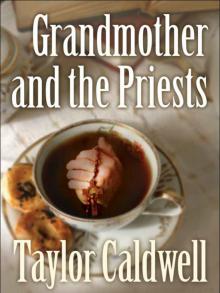 Grandmother and the Priests
Grandmother and the Priests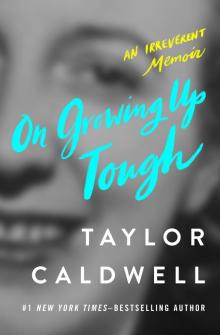 On Growing Up Tough: An Irreverent Memoir
On Growing Up Tough: An Irreverent Memoir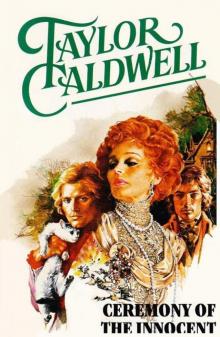 Ceremony of the Innocent
Ceremony of the Innocent The Listener
The Listener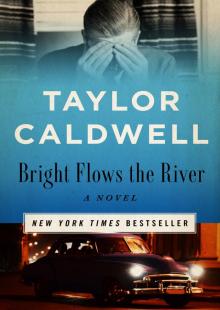 Bright Flows the River
Bright Flows the River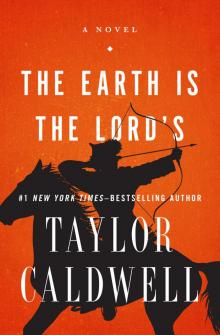 The Earth Is the Lord's
The Earth Is the Lord's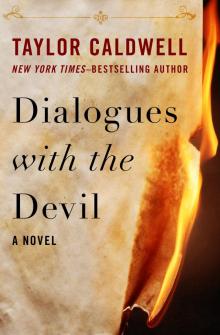 Dialogues With the Devil
Dialogues With the Devil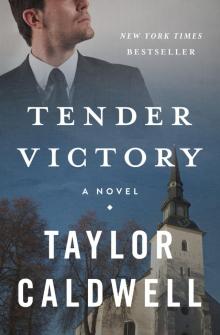 A Tender Victory
A Tender Victory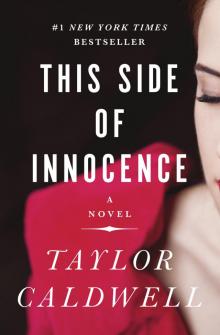 This Side of Innocence
This Side of Innocence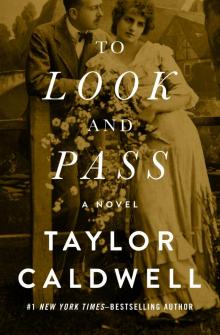 To Look and Pass
To Look and Pass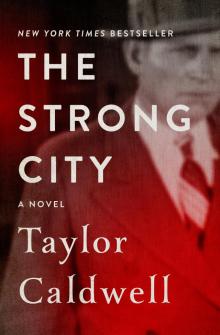 The Strong City
The Strong City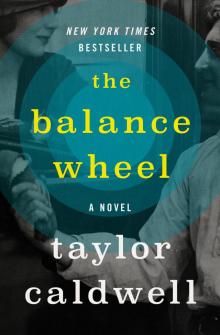 Balance Wheel
Balance Wheel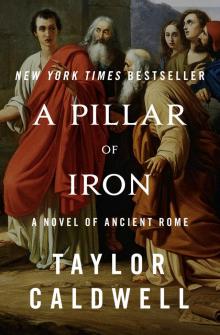 A Pillar of Iron: A Novel of Ancient Rome
A Pillar of Iron: A Novel of Ancient Rome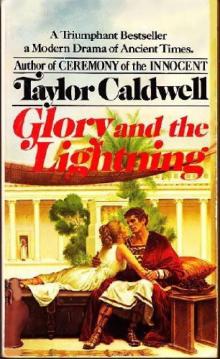 Glory and the Lightning
Glory and the Lightning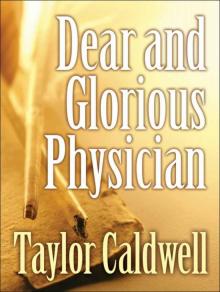 Dear and Glorious Physician
Dear and Glorious Physician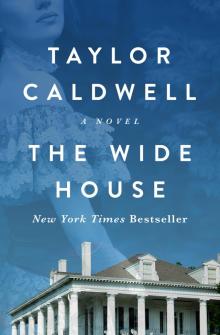 The Wide House
The Wide House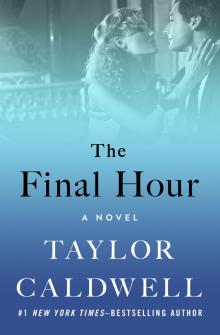 The Final Hour
The Final Hour Never Victorious, Never Defeated
Never Victorious, Never Defeated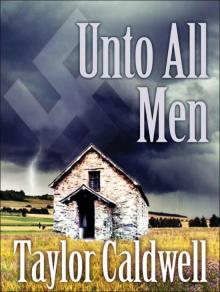 Unto All Men
Unto All Men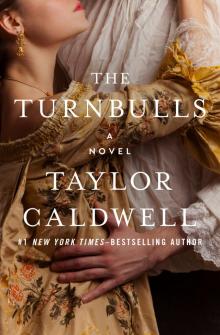 The Turnbulls
The Turnbulls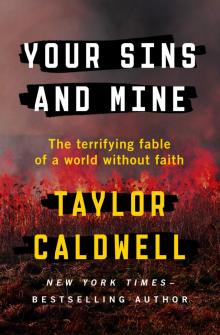 Your Sins and Mine: The Terrifying Fable of a World Without Faith
Your Sins and Mine: The Terrifying Fable of a World Without Faith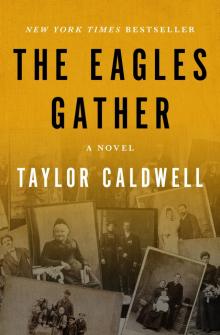 The Eagles Gather
The Eagles Gather Let Love Come Last
Let Love Come Last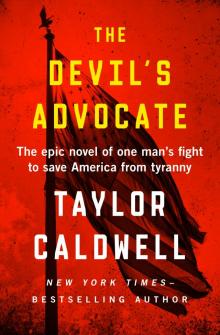 The Devil's Advocate: The Epic Novel of One Man's Fight to Save America From Tyranny
The Devil's Advocate: The Epic Novel of One Man's Fight to Save America From Tyranny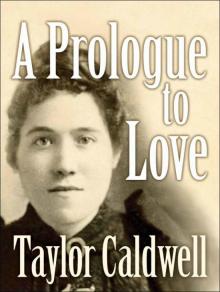 A Prologue to Love
A Prologue to Love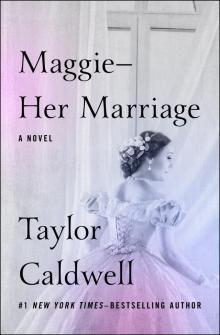 Maggie: Her Marriage
Maggie: Her Marriage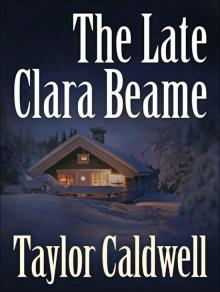 The Late Clara Beame
The Late Clara Beame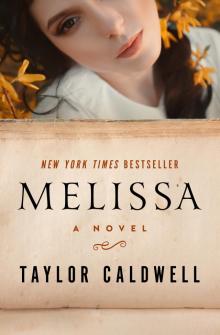 Melissa
Melissa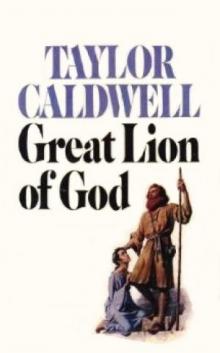 Great Lion of God
Great Lion of God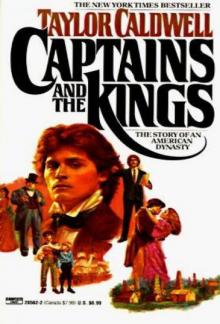 Captains and the Kings
Captains and the Kings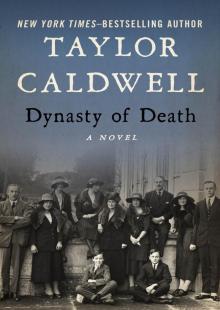 Dynasty of Death
Dynasty of Death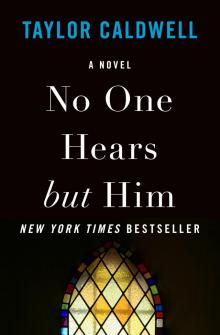 No One Hears but Him
No One Hears but Him The Sound of Thunder
The Sound of Thunder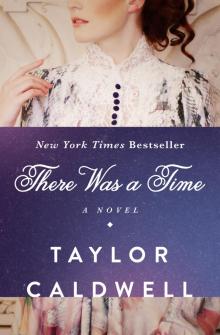 There Was a Time
There Was a Time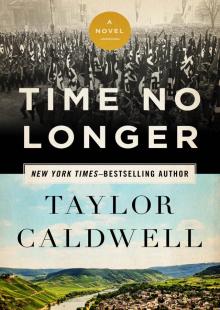 Time No Longer
Time No Longer I, Judas
I, Judas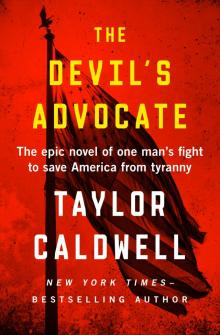 The Devil's Advocate
The Devil's Advocate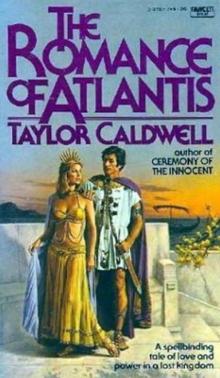 The Romance of Atlantis
The Romance of Atlantis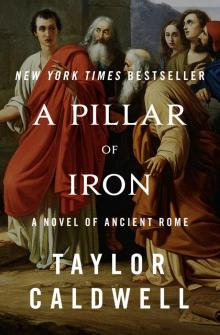 A Pillar of Iron
A Pillar of Iron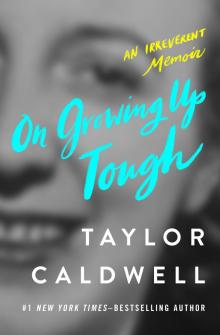 On Growing Up Tough
On Growing Up Tough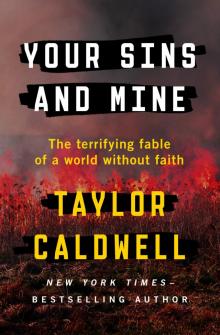 Your Sins and Mine
Your Sins and Mine